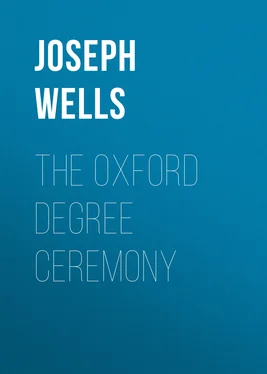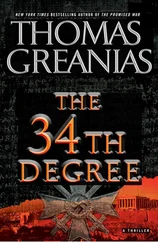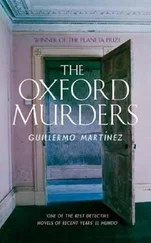As then the University is a guild of Masters, the degree is the 'step' by which the distinction of becoming a full member of it is attained. Gibbon wrote a century ago that 'the use of academical degrees is visibly borrowed from the mechanic corporations, in which an apprentice, after serving his time, obtains a testimonial of his skill, and his licence to practise his trade or mystery'. This statement, though accurate in the main, is misleading; the truth is that the learned body has not so much borrowed from the 'mechanic' one, as that both have based their arrangements independently on the same idea.
A Bachelor of Arts.
This connexion may be illustrated from the other degree title, 'Bachelor.' If the etymology at present best supported may be accepted, that honourable term was originally used for a man who worked on a 'cow-strip' of land, i.e. who was assistant of a small cultivator; whether this be true or not, it at any rate soon came to denote the apprentice as opposed to the master-workman; in fact the 'Bachelor' in the university corresponded to the 'pupil-teacher' of more humble associations in our own days. In this sense of the word, as Dr. Murray quaintly says, a woman student can become a 'Bachelor' of Arts.
Конец ознакомительного фрагмента.
Текст предоставлен ООО «ЛитРес».
Прочитайте эту книгу целиком, купив полную легальную версию на ЛитРес.
Безопасно оплатить книгу можно банковской картой Visa, MasterCard, Maestro, со счета мобильного телефона, с платежного терминала, в салоне МТС или Связной, через PayPal, WebMoney, Яндекс.Деньги, QIWI Кошелек, бонусными картами или другим удобным Вам способом.
In 1619 a B.A. candidate from Gloucester Hall (now Worcester College), who failed to present himself for his 'grace', was excused 'because he had not been able to hear the bell owing to the remoteness of the region and the wind being against him'.
Till recently the whole list of candidates for all degrees was read by the Registrar, as well as by the Proctors afterwards when 'supplicating' for the graces of the various sets of candidates. Time is now economized by having the names read once only.
If the Doctor be not an M.A., then his admission to the Doctorate follows the admission of the M.A.s.
Verdant Green was published in 1853, and this is the oldest literary evidence for the connexion of 'plucking' and the Proctorial walk. The earliest mention of 'plucking' at Oxford is Hearne's bitter entry (May, 1713) about his enemy, the then Vice-Chancellor, Dr. Lancaster of Queen's—'Dr. Lancaster, when Bachelor of Arts, was plucked for his declamation.' But it is most unlikely that so good a Tory as Hearne would have used a slang phrase, unless it had become well established by long usage. 'Pluck', in the sense of causing to fail, is not unfrequently found in English eighteenth century literature, without any relation to a university; the metaphor from 'plucking' a bird is an obvious one, and may be compared to the German use of 'rupfen'.
The old principle is that no one should be presented except by a member of the University who has a degree as high or higher than that sought; this is unfortunately neglected in our own days, when an ordinary M.A., merely because he is a professor, is appointed by statute to present for the degree of D.Litt. or D.Sc.
This delightful piece of English conservatism was only removed from the statutes in 1827. It refers to the foundation of a university at Stamford in 1334 by the northern scholars who conceived themselves to have been ill-treated at Oxford; the attempt was crushed at once, but only by the exercise of royal authority.
The form is found in the two 'Proctors' books', of which the oldest, that of the Junior Proctor, was drawn up (in 1407) by Richard Fleming, afterwards Bishop of Lincoln and founder of Lincoln College; but it was then already an established form, and probably goes back to the thirteenth century, i.e. to the reign of Henry III.
It is perhaps still necessary to emphasize the fact that the name 'University' had nothing to do with the range of subjects taught, or with the fact that instruction was offered to all students; the latter point is expressed in the earlier name 'studium generale' borne by universities, which is not completely superseded by 'universitas' till the fifteenth century.
The coincidence is not accidental. Magna Carta was wrested from a king humiliated by his submission to the Pope, and the University Charter was given to redress an act of violence on the part of the Oxford citizens, who had been stimulated in their attack on the 'clerks' of Oxford by John's quarrel with the Pope.











